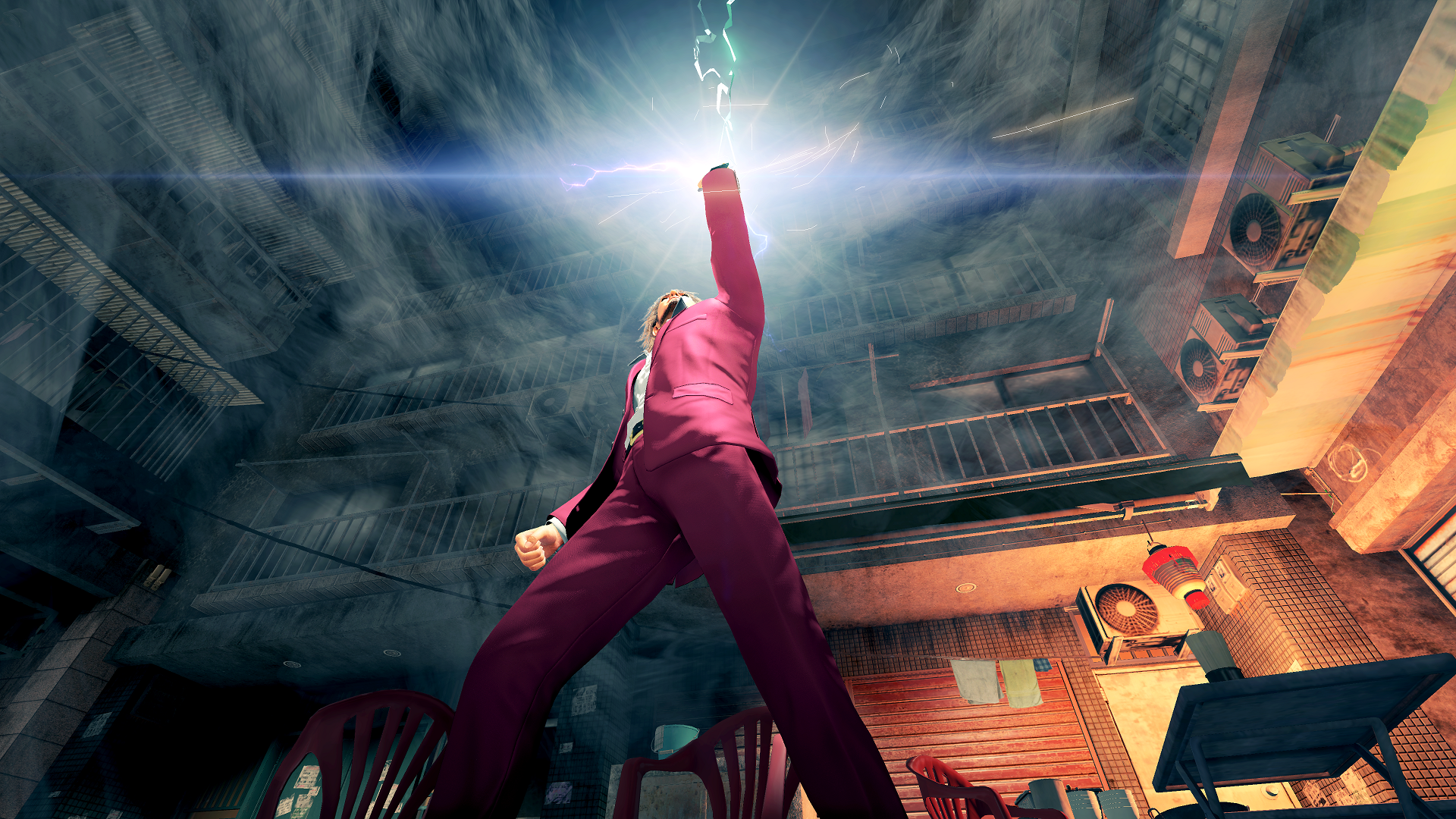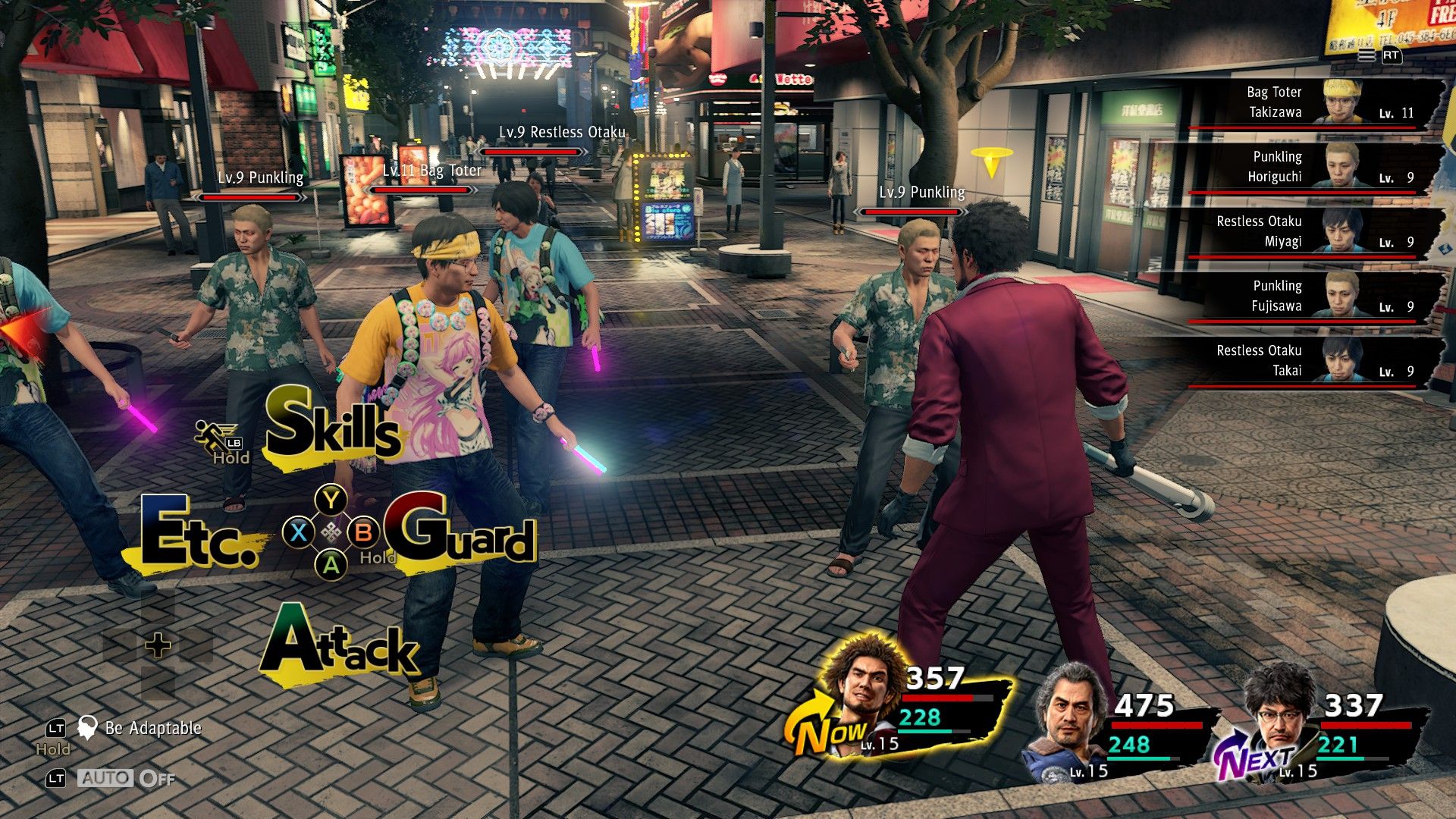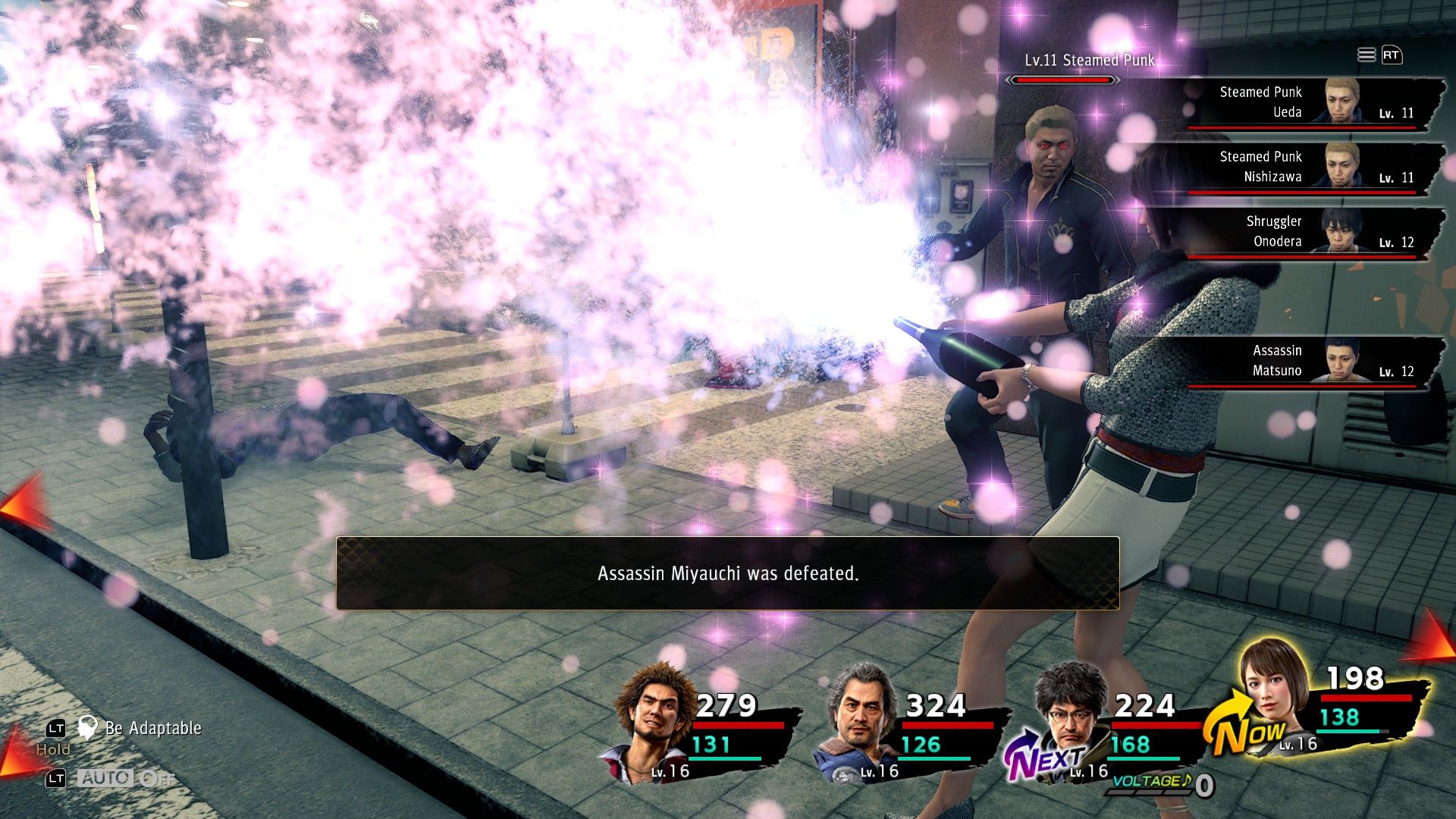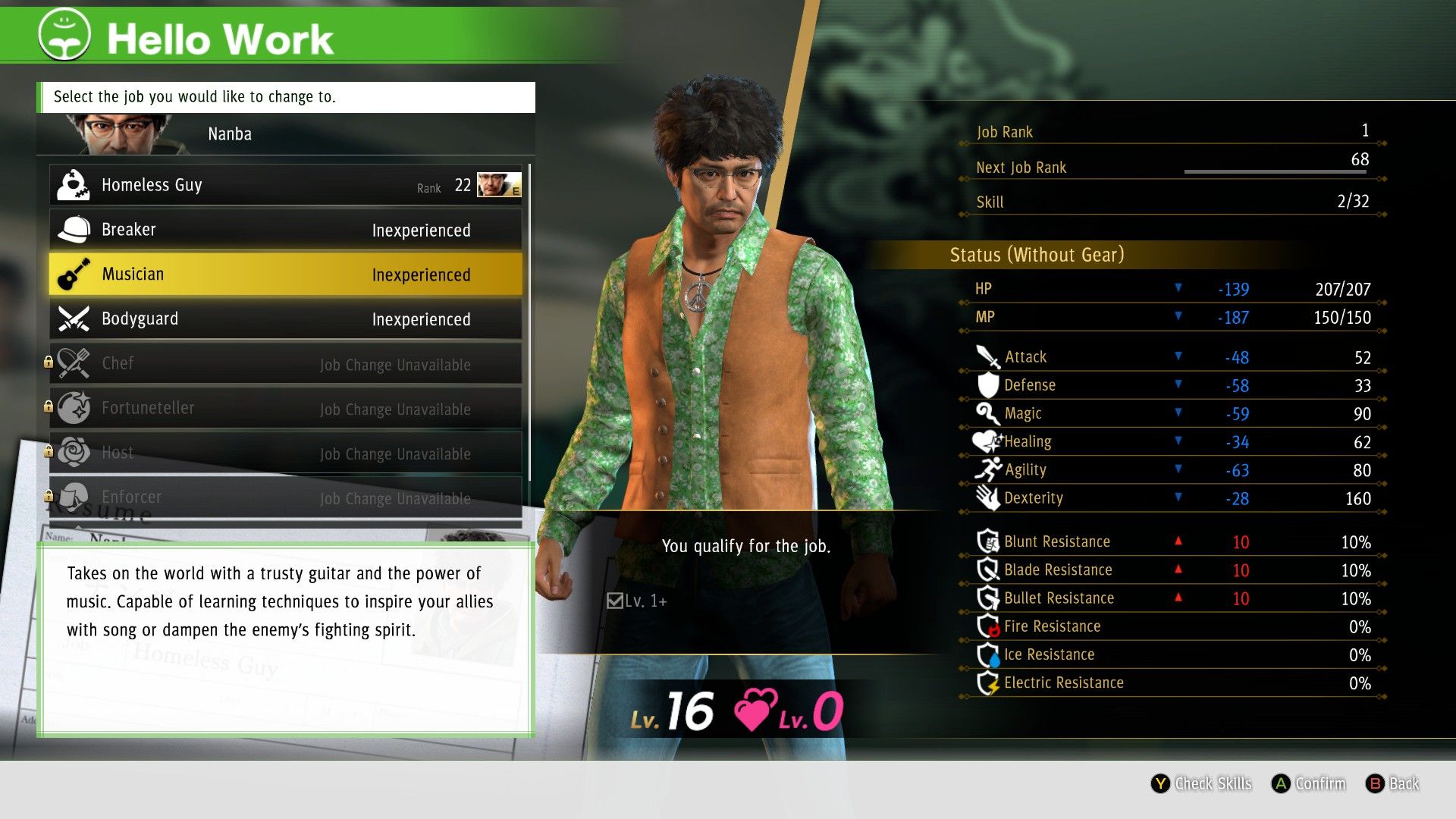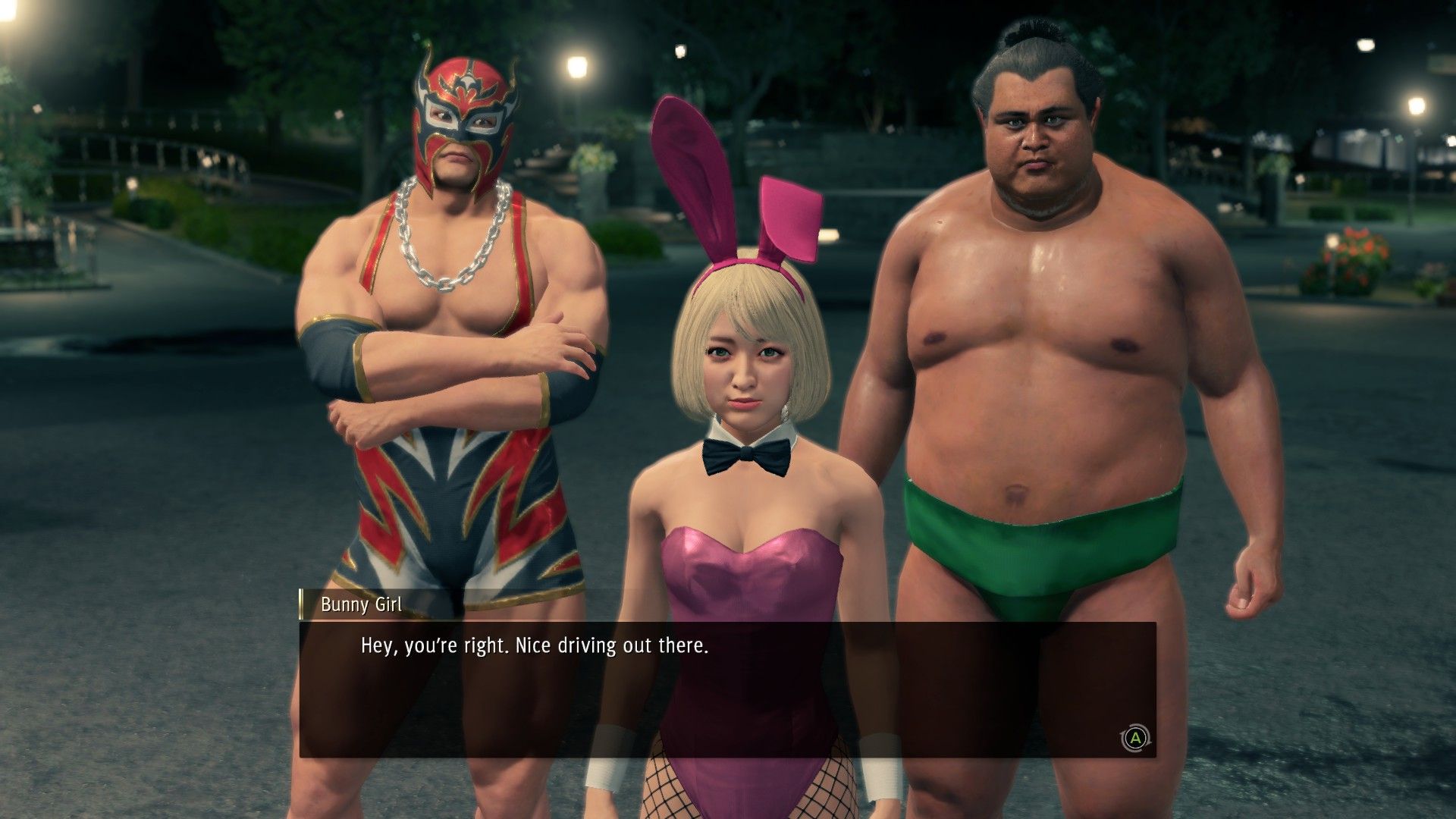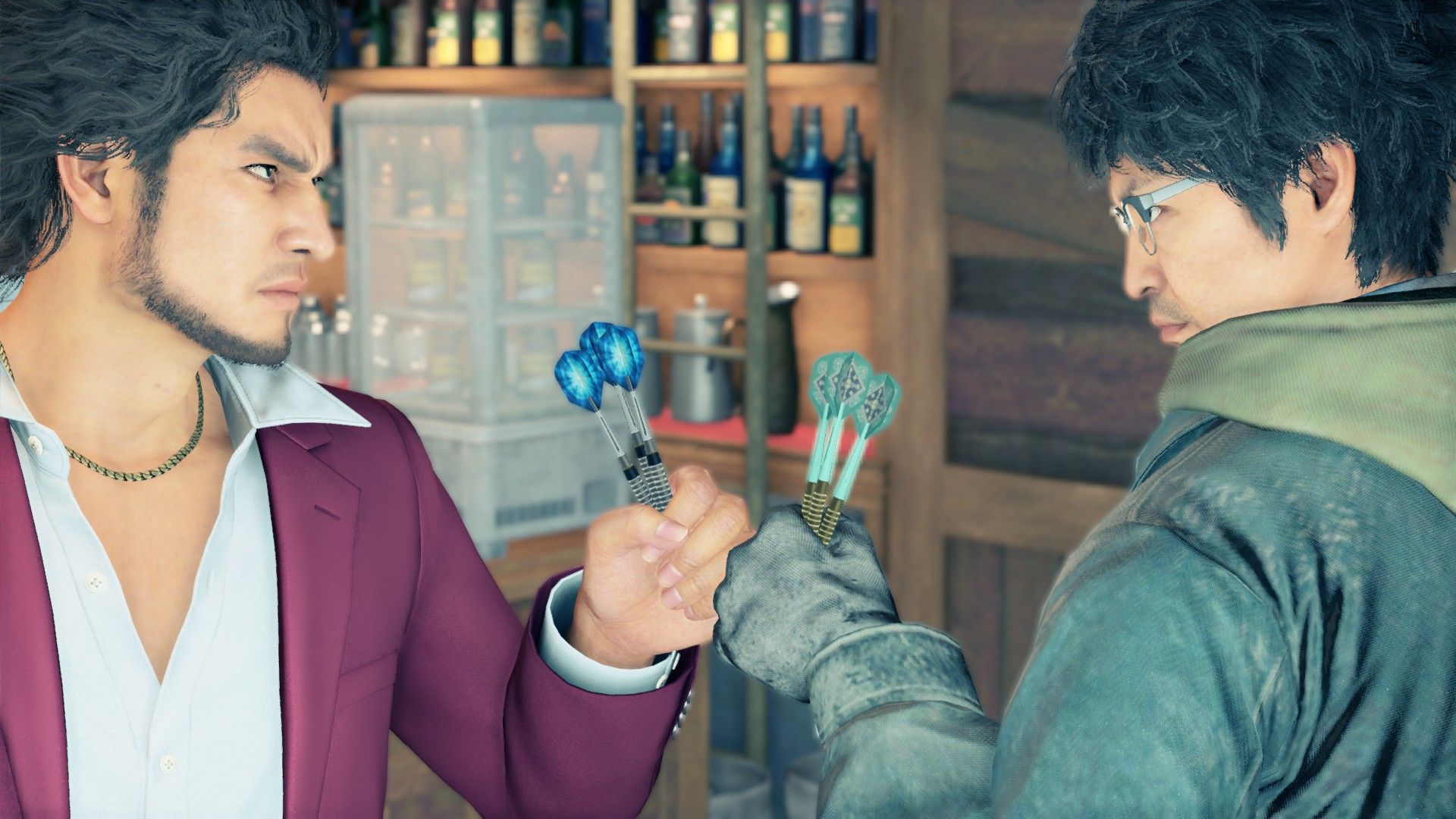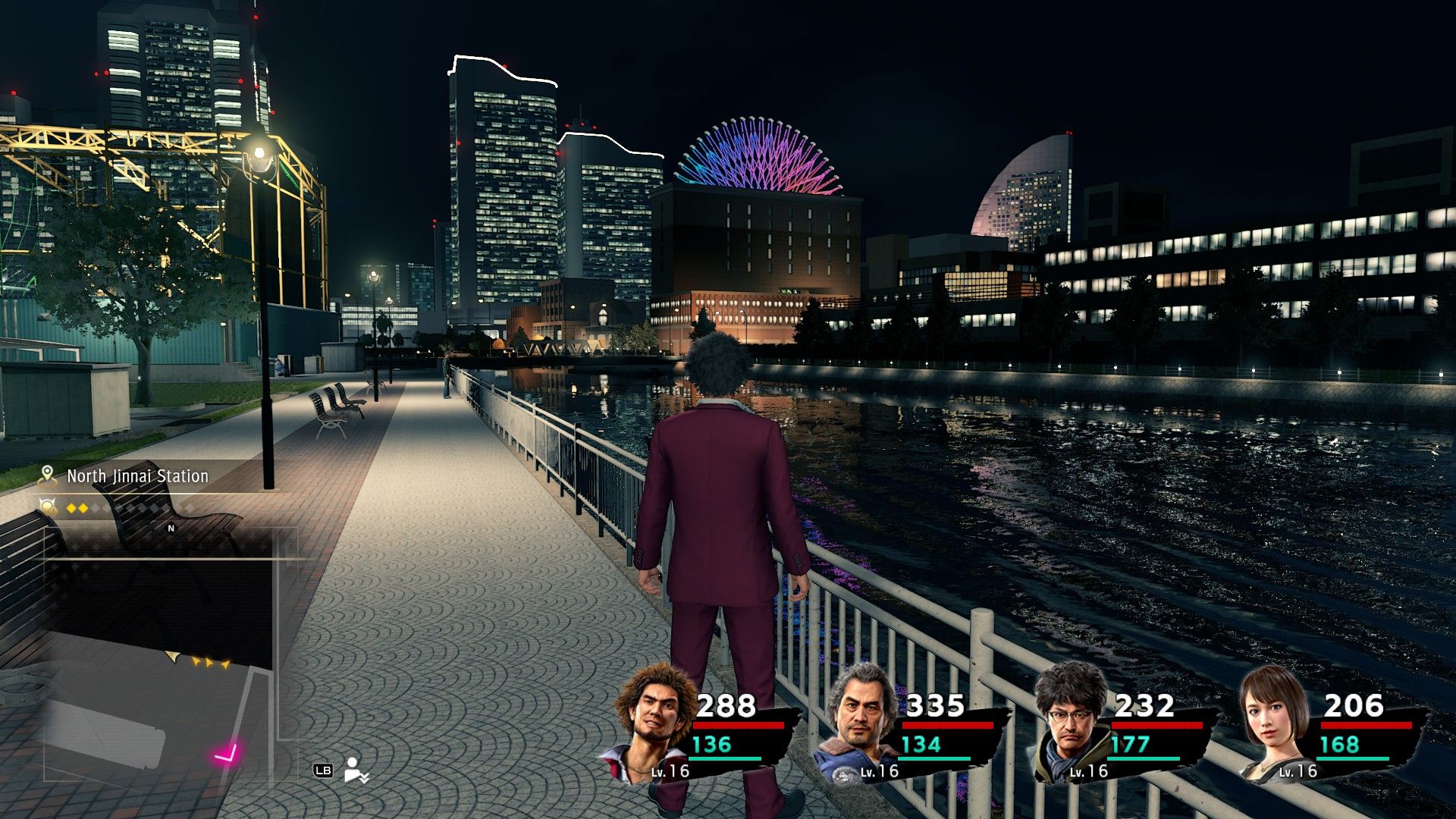I went into my preview of Yakuza: Like a Dragon (otherwise known as Yakuza 7) with a set goal in mind. As a series fan -- and arguably the guy most responsible for our relevant 2019 Game of the Year choice -- I’ve played through each of the numbered titles and most spinoffs in the franchise. Well... the ones released in English, anyway (localise Kenzan and Ishin, you cowards!). Up until this point, each Yakuza game has been a brawler with RPG elements. Yakuza: Like a Dragon made rumblings among fans when it was revealed to be trading that in for a turn-based JRPG battle system. Crucially, however, every other aspect of the series looked to be intact; the serious crime drama interspersed with utterly ridiculous side stories still remains, mixed in with a wealth of minigames and open-world shenanigans.
My goal was simple, then: I wanted to see if Yakuza 7 still felt like a Yakuza game regardless of the genre shift. Well, that answer is unequivocally a yes.
Yakuza: Like a Dragon is the first mainline Yakuza entry to be made after the conclusion of series mainstay Kiryu’s story arc. As such, it features both a new protagonist in afro-sporting Ichiban Kasuga, and a new city in Yokohama where the story is focused. The iconic Kamurocho is still present as a secondary stomping ground, mind you, but I didn’t get to experience that in my preview. Instead, I was dropped a few chapters in and given leave to roam Yokohama with Ichiban and his cohorts.
[pullquote]"From the second I loaded up and hit the streets of Yokohama, the immediate feel of a Yakuza game returned."[/pullquote]
Despite having no real context in the story events and character backdrops, I was instantly drawn in to this new adventure. From the second I loaded up and hit the streets of Yokohama, the immediate feel of a Yakuza game returned. It looked, felt, and sounded familiar, even with a new location and protagonist. At this point, the series is comfortable to me, and any chance to return is a welcome one. So, then, how did the genre change affect it?
It didn’t take me long at all to find out. The wandering bands of thugs and goons that you’d normally fight in Yakuza are still present in Like a Dragon, but engaging them triggers a quick battle transition. You still fight on the streets and interact with the environment, but the entire thing plays out as Kasuga -- a Dragon Quest fan -- imagines it in his head. The enemies become more exaggerated, with the sort of naming puns that'll have Level 5 taking notes, and the battle begins.
[pullquote]"Even if the battles are conventional genre fare, they feel delightfully dynamic."[/pullquote]
In practice, Yakuza: Like a Dragon is reasonably traditional in its turn-based battle system. You’ll pick your actions from a series of Persona-esque menus, select your targets, and let fly. What makes Yakuza's battles stand out is how these actions play out and interact with one another. Characters in the battle don’t just stand still and instead move about the battlefield while waiting for their turn. If there are objects around to use as improvised weapons, they’ll pick them up and do an extra strike before committing to their main action. AoE attacks can vary in effectiveness depending on how still the target might want to remain (or occasionally the path your party member takes to get to them). An enemy knocked to the ground will be susceptible to a guaranteed critical hit, should the next attack be input before they can get back to their feet. Even if the battles are conventional genre fare, they feel delightfully dynamic.
Your actions and attacks will be familiar to anyone who knows JRPGs, particularly Dragon Quest. There are buffs and debuffs, attacks that can inflict ailments, and some abilities have elemental attributes. Still, you’ve never seen them framed or presented like Yakuza: Like a Dragon. A fire spell might be a party member chugging alcohol before spitting it through their lighter at someone, or a water spell has you shake up a champagne bottle before spraying it on foes. The way these abilities are displayed is frequently hilarious, and I was always keen to try out new jobs or combinations just to see them all.
Speaking of jobs, Yakuza 7 does have a job system to allow for heaps of customisation. Framed as picking up literal part-time jobs, these will see your characters donning appropriate outfits and new weapons to hilarious effect. Some examples include Musicians, who beat people up with guitars while singing songs to buff/debuff, or the Enforcer, who dons SWAT gear and charges through crowds of opponents. Using the jobs will see the characters rank up within it, increasing stats and gaining new abilities. This means that swapping to a new one might see you decrease in strength for a while, but your character’s main level increases separately so this is mitigated somewhat. As such, I was keen to keep switching things up and find the best (or most hilarious) combos I could.
But it wouldn’t be a JRPG battle system without some form of Summons! As Ichiban makes friends and gains allies, he’ll be able to literally call them on the phone and gain their aid in some spectacularly over the top animations. These abilities are extremely powerful, but using them comes with a money cost; friends aren’t cheap, but it keeps their use from being too unbalanced. Besides, the price is worth it to see crayfish rain down from the sky to claw enemies up, just because I befriended a literal crayfish in a side story.
[pullquote]"The sincere and heartfelt moments are constantly interlaced with (or quickly become) utterly ridiculous experiences."[/pullquote]
These side stories are also true to the Yakuza experience. The sincere and heartfelt moments are constantly interlaced with (or quickly become) utterly ridiculous experiences. In addition to my crayfish escapades, I received a parenting lesson from a diaper-wearing yakuza patriarch who likes to act like a baby. I helped escort a guy clothed only in soap suds through a network of puddles and people spraying water to get to a clothing store. And this is only scratching the surface.
Yakuza games have always laughed in the face of ludo-narrative dissonance, shifting rapidly in tone from insane to completely serious. Yet somehow, that ridiculousness rarely becomes too much. Mostly, this comes down to the absolute sincerity with which the Ryu ga Gotoku Studio sells every scene. The presentation, writing, music, and voice acting is always top-notch no matter the situation. This has carried over to the English localisation too, as Yakuza 7 is the first mainline Yakuza game (thus excluding Judgment) to receive an English dub. Normally I keep the Japanese dubs when given the choice, but for the preview, I kept the English voices on, and I was thoroughly impressed. Kaiji Tang’s performance as Ichiban Kasuga is equal parts hilarious and heartfelt, and I’m sorely tempted to play the dub for the full release.
This extends to the additional cast members, too. I kept a consistent party of four characters in my playtime, ranging from Kasuga’s homeless friend Nanbu, the ex-detective Adachi, and the fiery barmaid Saeko. Each of them was well-written and acted. Even without the context of previous chapters, the few story segments I played still carried strongly. There’s plenty of little conversations, optional dialogues, and other moments in which they get to shine and really present themselves as interesting characters.
It is to Yakuza: Like a Dragon’s credit that I seriously didn’t want to stop playing the preview. I did my best not to look into the plot too much, but what was there still has me wanting to learn more and see how the story progresses. I like the characters, and I’m enjoying what I’ve experienced of the battle system. There’s so much more that I barely got to experience in my time with it, such as the full extent of gear crafting. Dragon Kart is shaping up to be as hilarious and enjoyable a side activity as the drone races of Judgment. It’s gonna be a good time.
[pullquote]"Whatever you might say about the genre shift, becoming a turn-based JRPG hasn’t really changed the Yakuza DNA at all."[/pullquote]
Whatever you might say about the genre shift, becoming a turn-based JRPG hasn’t really changed the Yakuza DNA at all. I’ll certainly miss the brawling combat of old, mind you; there’s really not much else like it, especially when compared to the wealth of RPG alternatives. But everything else that contributes to the style and feel of a Yakuza game is present, and the quality is as strong as the series has ever been. Between the no doubt interesting crime drama story, as well as the usual selection of minigames and side content on hand, Yakuza 7 is likely to keep me enthralled. I’ll leave the Cyberpunk 2077 release to everyone else; instead, I’ll be busy playing Yakuza as soon as I can.
Yakuza: Like a Dragon will be available on PC, Xbox Series X/S, and current-gen consoles (excluding Switch) from November 10. PS5 owners will have to wait until March 2, but will get a free upgrade from the PS4 version when available. In the meantime, if you’ve still yet to play a Yakuza game, you should really get on that. It's always a good time to start.

